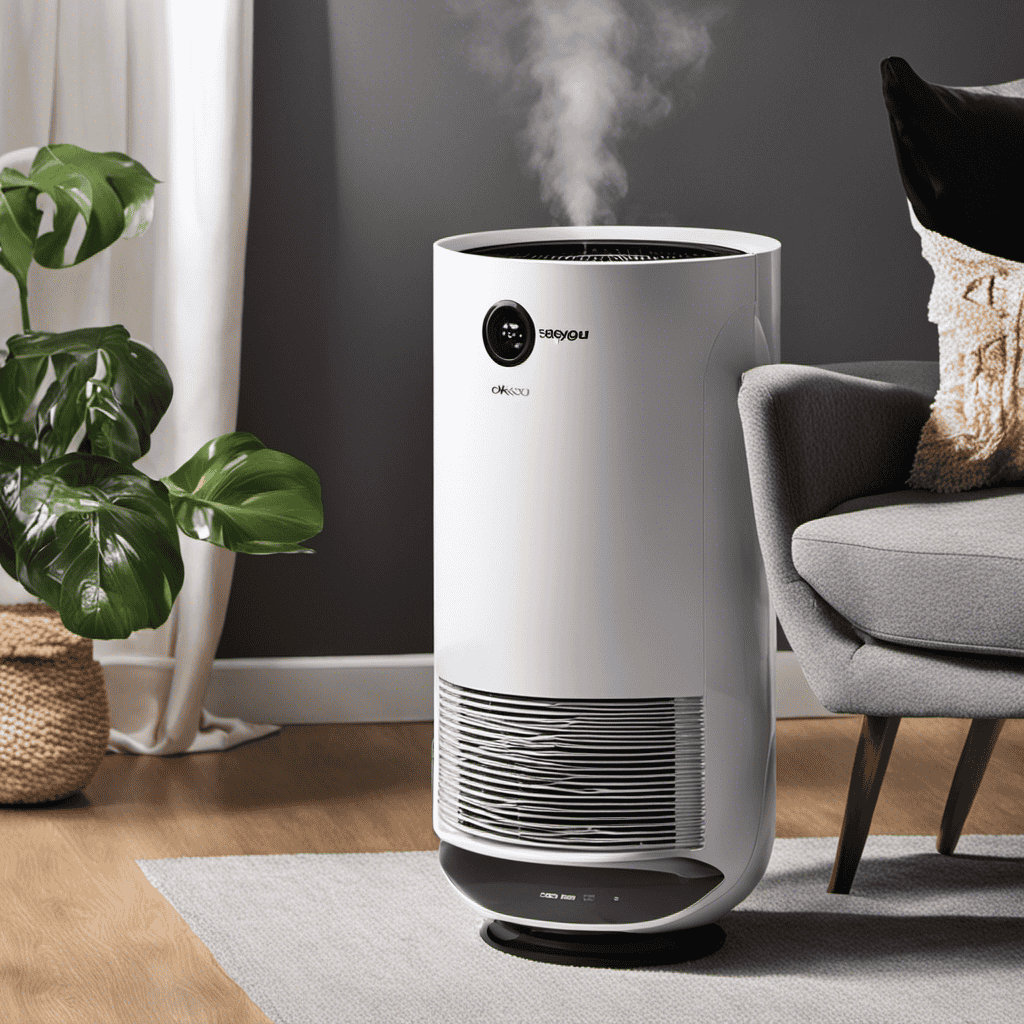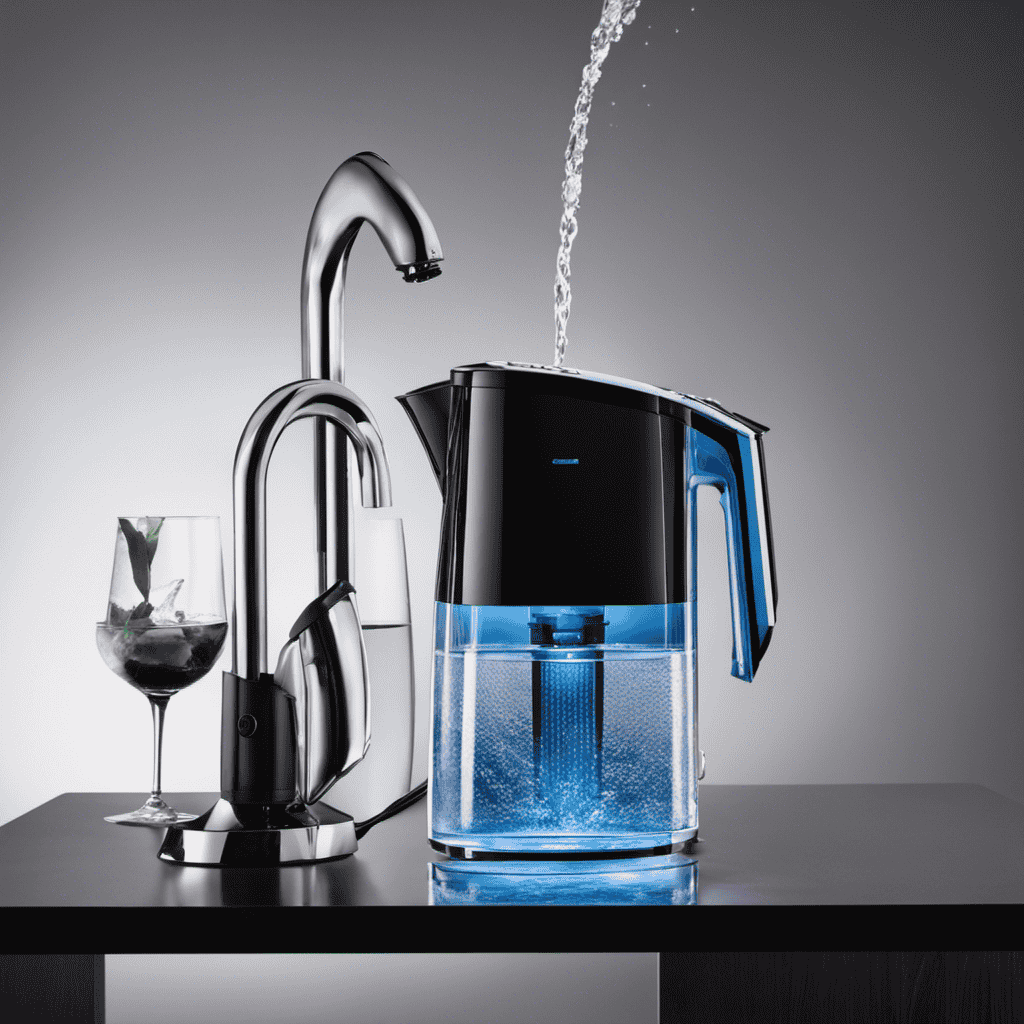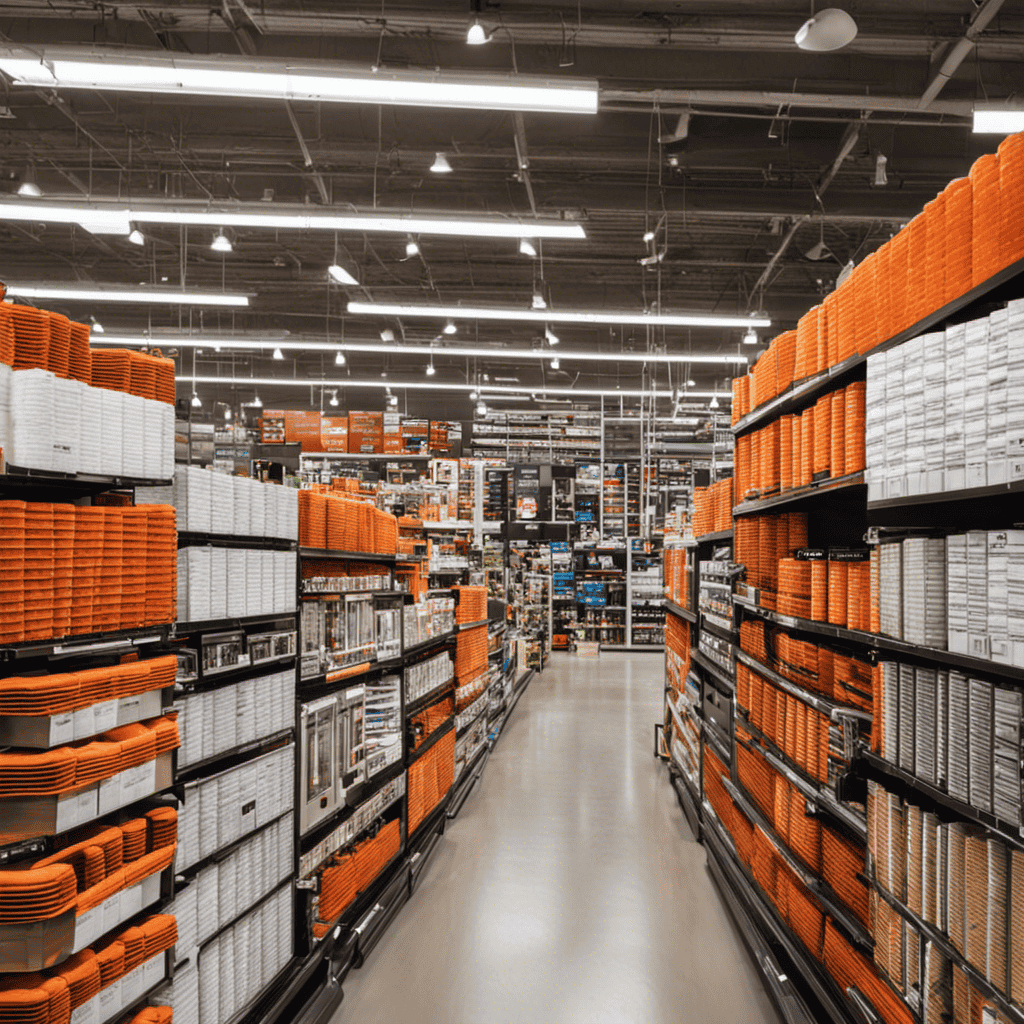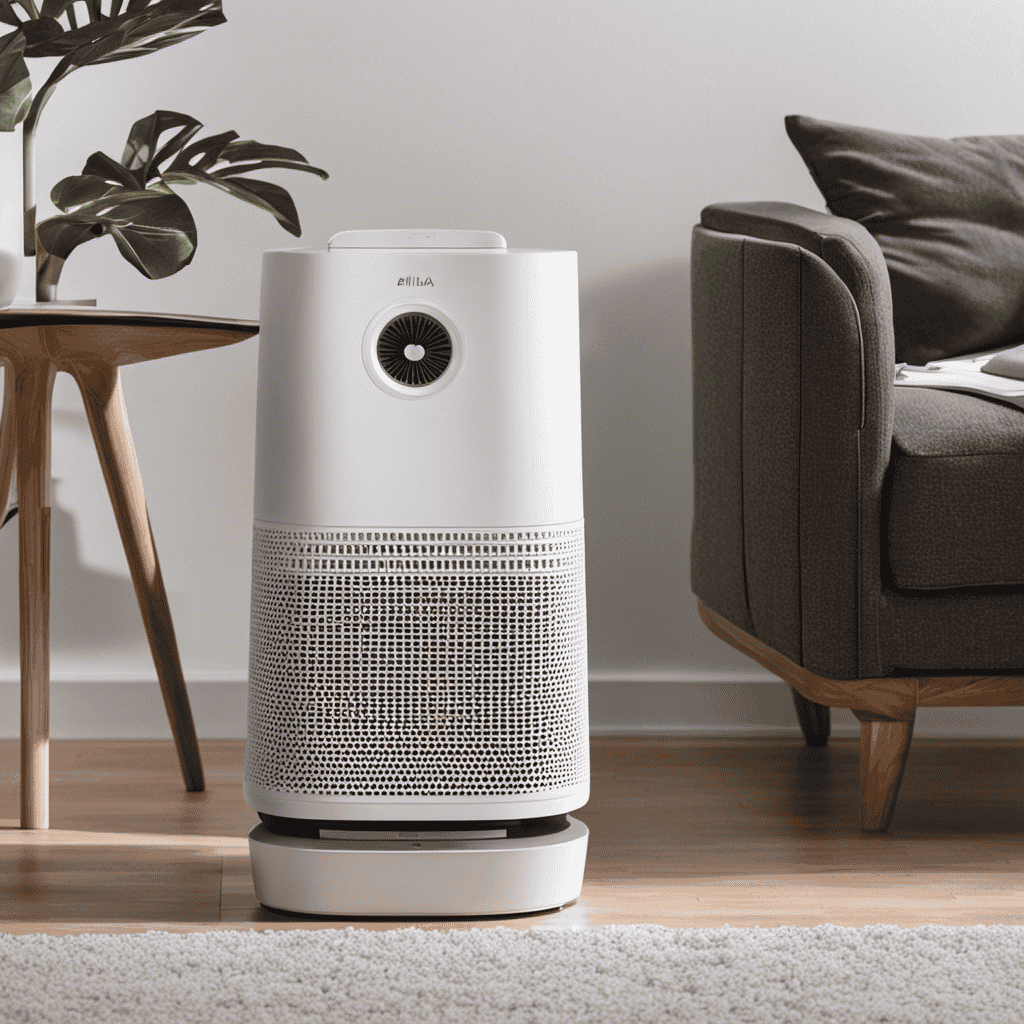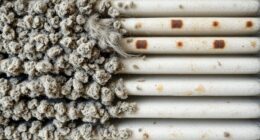As the owner of an IQ Air Purifier, I have frequently pondered about the frequency at which its filters require replacement. Knowing the lifespan of these filters is essential to uphold the effectiveness and functionality of the air purifier.
In this article, I will delve into the factors that affect filter lifespan, the recommended replacement frequency, and the signs that indicate when it’s time to replace them. Furthermore, I will share tips on how to extend the lifespan of the filters and provide an overview of the different types of IQ Air Purifier filters available.
Key Takeaways
- Frequency of usage and air quality in the environment are key factors that affect the lifespan of IQ Air purifier filters.
- Regularly replacing filters is recommended to ensure cleaner air and maintain the efficiency of the purifier.
- Signs that indicate the need for filter replacement include decreased air quality, increased allergies or respiratory issues, persistent unpleasant odors, and reduced airflow through the purifier.
- Extending the lifespan of air purifier filters can be achieved through regular maintenance, cleaning and replacing pre-filters when necessary, positioning the purifier in a well-ventilated area, and conducting a cost analysis for filter replacement.
Factors Affecting Filter Lifespan
One of the factors that affect the lifespan of IQ Air purifier filters is the frequency of usage. The more often the purifier is used, the quicker the filters will become saturated with contaminants.
Another factor that impacts filter longevity is the air quality in the environment where the purifier is being used. If the air is heavily polluted or filled with harmful particles, the filters will have to work harder to clean the air, leading to a shorter lifespan.
Additionally, the size of the particles in the air can also affect the filter lifespan. Larger particles can clog the filters more quickly, reducing their efficiency and lifespan.
It is crucial to consider these filter lifespan factors and the impact of air quality on filter longevity when using an IQ Air purifier.
Recommended Filter Replacement Frequency
When it comes to optimal filter replacement for air purifiers, it is crucial to consider the frequency at which filters should be changed. This discussion will delve into the key points surrounding this topic, including factors such as air quality, usage patterns, and the specific type of filter being used.
Optimal Filter Replacement
To ensure your IQ Air purifier is working at its best, you should regularly replace the filters. Extending the filter lifespan is crucial in maintaining the overall performance and efficiency of your purifier.
Here are some reasons why timely filter replacement is important:
-
Cleaner Air: Regularly replacing filters ensures that the air you breathe remains clean and free from pollutants.
-
Efficiency: Clogged filters can reduce the airflow and strain the purifier’s motor, leading to decreased efficiency.
-
Health Benefits: By replacing filters on time, you are reducing the risk of respiratory issues and allergies caused by the accumulation of dust, pollen, and other contaminants.
Frequency for Changing Filters?
The recommended frequency for changing your purifier’s filters is based on the manufacturer’s guidelines. Different purifier models may have different recommendations, so it’s essential to consult your purifier’s user manual or contact the manufacturer directly for accurate information.
However, as a general guideline, most manufacturers recommend replacing the filters every 6 to 12 months. Regular filter replacement is crucial to ensure optimal performance and maintain clean indoor air quality. It helps to remove pollutants, allergens, and other harmful particles effectively.
When choosing replacement filters, it is advisable to stick to recommended filter brands by the manufacturer. These brands are designed to fit perfectly and provide the best filtration efficiency.
Now let’s explore the signs that indicate filter replacement is needed.
Signs That Indicate Filter Replacement Is Needed
One way to know if an IQ Air Purifier filter needs replacing is when you notice a decrease in air quality. As the filter becomes clogged with pollutants, its performance decreases, resulting in poor air circulation and compromised filtration.
To ensure optimal air purification, it is essential to pay attention to warning signs and filter performance indicators. Here are three signs that indicate the need for filter replacement:
-
Increased allergies or respiratory issues: If you or your family members start experiencing more frequent allergy symptoms or respiratory problems, it could be a sign that the filter is no longer effectively capturing allergens and pollutants.
-
Unpleasant odors: If you notice persistent odors in your home, it could mean that the filter is unable to eliminate airborne particles effectively.
-
Reduced airflow: A decrease in the amount of air flowing through the purifier could be an indication that the filter is clogged and needs replacing.
Extending the Lifespan of Air Purifier Filters
Now that we have discussed the signs that indicate when an air purifier filter needs replacement, let’s delve into ways to maximize the lifespan of these filters.
By following a few key practices, you can extend the effectiveness and durability of your air purifier filters, ultimately reducing the frequency of replacements and saving on filter replacement costs.
To begin with, regular maintenance is crucial. Cleaning the pre-filter and replacing it when necessary helps prevent larger particles from clogging the main filter, thus maximizing its performance. Additionally, positioning your air purifier in a well-ventilated area away from obstructions such as furniture or curtains allows for better airflow and prolongs filter life.
Furthermore, conducting a filter replacement cost analysis can be beneficial. By comparing the costs of different filter options and their estimated lifespan, you can make informed decisions that balance performance and budget. Some filters may have a higher upfront cost but last longer, resulting in potential long-term savings.
Different Types of Iq Air Purifier Filters
When it comes to air purifiers, understanding the filter replacement frequency is crucial for maintaining optimal indoor air quality.
In this discussion, we will explore the recommended intervals for replacing IQ Air purifier filters, taking into account factors such as usage and environmental conditions.
Additionally, we will compare the effectiveness of different filters in removing various types of pollutants, providing insights into which filter may be best for your specific needs.
Lastly, we will share essential maintenance tips to ensure your IQ Air purifier filters continue to perform at their best, prolonging their lifespan and maximizing their efficiency.
Filter Replacement Frequency
To ensure optimal performance, you should regularly check and replace the filters in your IQ Air Purifier. The frequency of filter replacement depends on the type of filters used and the air quality in your environment.
Here’s a breakdown of the filter replacement cost and filter lifespan comparison for different IQ Air Purifier models:
-
Filter Replacement Cost: The cost of replacing filters can vary depending on the model of the IQ Air Purifier. On average, the cost ranges from $60 to $150 per filter.
-
Filter Lifespan Comparison: The lifespan of filters also varies based on the model and usage. Generally, pre-filters need to be replaced every 6-12 months, while the HEPA filters have a lifespan of 2-4 years. However, it is important to regularly monitor the filter status and replace them accordingly to maintain the effectiveness of your IQ Air Purifier.
Regularly replacing the filters in your IQ Air Purifier will not only ensure efficient air purification but also contribute to better indoor air quality.
Filter Effectiveness Comparison
The effectiveness of the filters in different IQ Air Purifier models can vary depending on their type and usage. It is important to understand the filter efficiency comparison in order to choose the right model for your needs. IQ Air Purifier offers a range of filters, including the PreMax, V5-Cell, and HyperHEPA filters. These filters are designed to capture various types of pollutants, such as dust, pollen, pet dander, and even ultrafine particles as small as 0.003 microns. Regular filter replacement is crucial to maintain the optimal performance of your IQ Air Purifier. By replacing the filters as recommended by the manufacturer, you can ensure that your purifier continues to provide clean and fresh air for you and your family. Here is a table summarizing the benefits of regular filter replacement:
| Benefit | Description |
|---|---|
| Improved Air Quality | Regular filter replacement helps to remove pollutants from the air, resulting in cleaner and fresher air. |
| Enhanced Filter Efficiency | New filters have higher efficiency in capturing airborne particles, ensuring better purification. |
| Longer Purifier Lifespan | By replacing filters regularly, you can extend the lifespan of your IQ Air Purifier and save on costs. |
Filter Maintenance Tips
In my research on filter effectiveness, I discovered that maintaining the filters in an IQ Air purifier is essential for optimal performance. By extending the filter lifespan through regular cleaning, you can save money and ensure clean, healthy air in your home.
Here are some filter maintenance tips that I found:
-
Vacuuming: Use a soft brush attachment to gently vacuum the surface of the filters. This will remove larger particles and debris, allowing the filters to capture smaller particles more efficiently.
-
Rinsing: For washable filters, rinse them under running water to remove dirt and dust. Be sure to let them dry completely before reinstalling.
-
Pre-filter Replacement: Replace the pre-filter regularly to prevent clogging and to prolong the life of the main filters.
Proper Maintenance to Prolong Filter Efficiency
Make sure you’re regularly cleaning and replacing your IQ Air Purifier filters to ensure optimal efficiency. Proper maintenance is crucial for extending the filter lifespan and keeping your air purifier working effectively.
Cleaning air purifier filters should be done at least once every three months, or more frequently if you live in a highly polluted area or have pets. Start by turning off and unplugging the unit. Remove the filters and gently vacuum them to remove any visible debris. If the filters are washable, rinse them with water and allow them to dry completely before reinstalling. For non-washable filters, replace them with new ones.
Regularly cleaning and replacing the filters will prevent clogging, maintain proper airflow, and ensure that your IQ Air Purifier continues to provide clean and fresh air for you and your family.
Frequently Asked Questions
Can I Use Non-IQ Air Filters in My IQ Air Purifier?
Yes, I can use aftermarket air filters in my IQ Air purifier, but it is recommended to use genuine IQ Air filters. Genuine filters offer better performance, filtration, and warranty, ensuring the best air quality for my health.
How Do I Clean My IQ Air Purifier Filters?
I clean my IQ Air purifier filters every 6 months. Regular cleaning improves air quality by removing dust, pollen, and other pollutants. It also helps maintain optimal performance and prolongs the lifespan of the filters.
Are There Any Health Risks Associated With Using a Dirty Air Filter?
Using a dirty air filter in an IQ Air Purifier can pose health risks. It can reduce the effectiveness of the purifier, leading to decreased air quality and potential long-term effects on respiratory health. Regular filter replacement ensures optimal performance and health benefits.
Can I Reuse IQ Air Filters After Cleaning Them?
I can’t reuse IQ Air filters after cleaning them. Regular filter replacement is beneficial for optimal performance and clean air. Neglecting filter replacement can compromise air quality and increase health risks.
Are There Any Warranty Options Available for IQ Air Purifier Filters?
Iq Air Purifier filters require replacement at regular intervals to ensure optimal performance. Regular filter maintenance is crucial for the longevity and effectiveness of the purifier. Warranty options may be available for IQ Air Purifier filters.
Conclusion
In conclusion, regularly replacing the filters in your IQ Air Purifier is essential for maintaining optimal air quality in your home or office.
The frequency of filter replacement depends on factors such as the level of air pollution in your area and the usage of the purifier. For example, in a case study conducted in a highly polluted city, it was found that the filters needed to be replaced every three months to ensure effective air purification.
By following the recommended maintenance guidelines and promptly replacing filters when needed, you can extend the lifespan of your IQ Air Purifier and enjoy clean and fresh air for longer periods.

